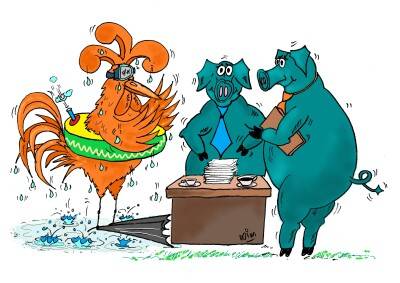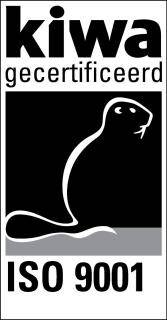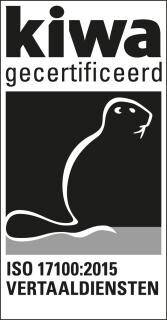
Five tips for your international communication
Do you want your company to be successful? Then first things first, you need to make sure you have your business affairs in order. That you deliver the best products, employ skilled professionals and offer outstanding customer service. A good product will always sell itself and the influence of word-of-mouth advertising shouldn’t be underestimated. In order to expand your market reach and boost brand awareness, an effective communication strategy is essential. Just as you wouldn’t turn up for a business meeting dressed in swimwear, you want your marketing strategy to match your core values, and radiate quality and success.
If you operate internationally, good marketing is vital. As a foreign company, you’re probably less familiar to local consumers. This means that when it comes to communication, you’ll be pushing your boundaries both literally and figuratively. We’ll go into this in more detail later on in this book, but this chapter we'll share some general tips for successful international and intercultural communication.
Tip 1 Respect other cultures
Every country and culture has its own norms and values. Keep that in mind in your multilingual business communication. This doesn't mean doing away with your own customs, but you will earn a lot of goodwill if you visibly make an effort to reach out to international consumers in your intercultural communication.
One of the most important cultural characteristics is language. It is widely assumed that almost everyone understands English, so an English language website or brochure should suffice for all international markets. Nevertheless, it’s better to address each consumer in their native language. Not only because not everyone has a strong command of English, but also because it shows you are willing to go that extra mile for your customers. Significantly, it gives your company the appearance of a local business, which creates a greater sense of trustworthiness and reliability for many customers.
Another advantage of using localised marketing materials is that you can always adapt them to the market in question. For example, if a product is popular in a specific country, you can give it a central position and emphasise specific cultural features. This is another major advantage of country-specific marketing, as opposed to only using one strategy for all of your international markets.
Tip 2 Get to know the market and adapt your communication channels accordingly
To implement good international communication, it is important to map out the landscape of communication in other countries. Then adapt your communication channels accordingly. In Germany for example, paper based communication is still very important. While Dutch companies love online marketing, SEO, e-books, social media and blogging, German marketers think differently. Germans think and act in a more traditional manner and are more indifferent to American influenced trends.
All this is not to say that you should try to win the hearts of the German market by focusing on brochures and other paper based communication. Germans highly respect the Dutch appetite for innovation. They greatly appreciate their ability to act unconventionally and think outside of the box. And let’s be honest, despite the cultural differences between Germans and the Dutch, they are in fact very similar in many respects. They are neighbours after all, who know each other well and have great mutual respect. So take national characteristics into account, but also dare to take risks.
Tip 3 Benefit from the double effect of translation and localisation
We’ve already mentioned it in the first tip: by translating content, you can also adapt your marketing material to ensure an optimal fit for different markets. And we don't mean simply translating your texts using a machine translation service like Google Translate. Apart from the often deplorable quality of the translation, the result often misses the local nuances, so the relevance of the information for the target market may literally be lost in translation. This leaves anything but a professional impression, causing your international translation to completely miss its mark. Depending on your company’s size, it’s important to hire expert marketers or outsource these tasks to a professional agency. The same applies to localising content. Use the services of a professional translation agency like AgroLingua. They employ native speakers, who know your products and the local market, and know the difference between translation and localisation. Also apply the principles of micromarketing by creating special slogans, adverts or commercials that are aligned to local customs and values.
The design of your marketing material can also be tailored to suit the local market.
But at the same time, make sure never to lose sight of uniformity and your corporate identity, as these are also your company’s recognised calling cards. Think about the term ‘glocal', a combination of the words global and local. In other words: ensure a consistent worldwide image with a local flavour - think globally, act locally.
Tip 4 Use alternatives to Google
Particularly when it comes to online marketing communication, you’ll naturally want to rank high in search engine results. Many companies restrict themselves to market leader Google, but if you’re internationally oriented, it would be unwise to ignore other search engines. In China, Google barely features. Baidu is the market leader. Even in its homeland of the United States, Google isn’t as dominant as it is in Europe, and Yahoo and Bing have a market share that shouldn’t be underestimated.
For your international SEO strategy, get good advice from expert and local professionals. They know that simply translating keywords doesn’t work, because these words must also be found in the localised content. And, as we have seen, this can differ from country to country. As a result, terms that are used in one country may not be found in content intended for use in another. Search engine marketing, tailored to the specific market is therefore the most effective and delivers the best results.
Tip 5 Put yourself in the position of the recipient
Tailor content and actions to the local market. Consider the mentality and mindset of the local consumer. Not all German consumers are particularly price-sensitive or receptive to price stunts, for example. They are quick to suspect a faulty product if the price suddenly drops to half-price. The German consumer scores high on avoiding uncertainty. They are much more interested in facts and good information, such as extensive product specifications, comparison of product ratings and reviews, seals of approval and your product test results. Be transparent when talking about your company, your products and services.
Want to know more? Then get in touch with the translation and localisation specialists at AgroLingua!
Terug naar blogs




.png)

